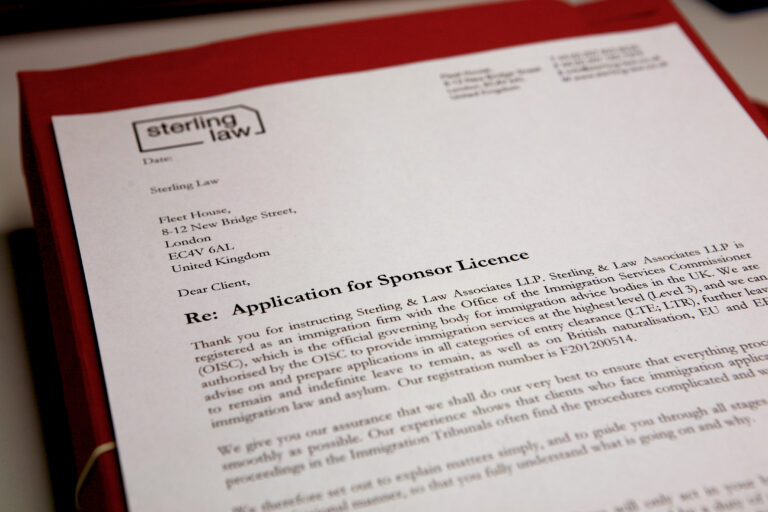Sponsorship Requirements to Work in the UK

In order to legally work in the UK, people who have opted in for Skilled Worker, Senior or Specialist Worker routes have to comply with a set of requirements for sponsorship. For any immigrant, it is crucial to discover these requirements and all the nuances associated with them in advance.
In this video, Edward Meade, a business immigration specialist, talks about the sponsorship licence and how to get one!
What is sponsorship for employment?
In the United Kingdom, hiring a non-resident from outside the European Economic Area requires a specific process, known as employment sponsorship. This procedure is governed by the UK’s points-based immigration system.
Here’s an outline of how it usually works:
- Securing a Sponsorship Licence: To start, the British company (the sponsor) must first obtain a sponsorship licence from the Home Office of the UK government.
- Offering Employment: Next, the company offers a job to the prospective employee from outside the UK or EEA.
- Issuing a Certificate of Sponsorship: If the position satisfies the criteria and the individual agrees to the job offer, the employer generates a Certificate of Sponsorship.
- Visa Application Process: The worker then uses this Certificate of Sponsorship to apply for a work visa. They must also meet some other requirements.
In the sphere of UK work permits, deciphering the stipulations becomes paramount. Your path selection, whether you opt for the Skilled Worker or SSW (Senior or Specialist Worker), introduces minute deviations in the sponsorship requirements.
Sponsorship requirements for Skilled Workers
There are four general requirements that Skilled Workers have to meet in order to get sponsorship to work in the UK:
- qualification requirements;
- salary threshold requirements;
- language requirements;
- financial requirements.
The first requirement is rather obvious, as a potential Skilled Worker has to be skilled and be able to prove it. The potential employee has to be at level 3 of the Regulated Qualifications Framework. The minimum salary for the person to become sponsored is £26,200 per year or £10.75 per hour, but these numbers may be higher for some professions.
The employee is also required to prove their knowledge of English at Level B1 or higher. Otherwise, they will not be able to apply for the Skilled Worker visa. Lastly, the employee has to be able to prove they have enough funds to sustain themselves throughout the period of their stay in the United Kingdom.
Sponsorship requirements for SSW
The requirements for the Senior or Specialist Worker route are expectedly higher, and there are some additional terms for the employee to comply with. For instance, it is necessary for the applicant to have worked at least 12 months in a company linked to their new employer.
The skill level requirements are also higher, as the potential employee has to be at least at level 6 of the Regulated Qualifications Framework. The minimum annual salary that a foreign worker under this route can have is £45,800 per year, or even higher, in case the minimum salary for the specific occupation is dictated by law and exceeds the mentioned sum.
Other UK sponsorship visa requirements mostly remain the same. The employee will still have to prove their knowledge of the English language and their ability to financially support themselves during their stay in the country.
Certificates of sponsorship
The certificates of sponsorship have to be issued by the employer. They represent all the vital details about the job, and the information is scrupulously reviewed by the authorities when considering the application of the employee. It is worth mentioning that the Home Office might check whether the position taken by the employee in the company matches the one on their certificate of sponsorship during their stay in the country.
How can we help?
You do require sponsorship to work in the UK under Skilled Workers or SSW routes, and the team of Sterling Law is always ready to help you out. Our solicitors with years of experience behind their backs will carefully review your case and provide you with the best options for your specific situation. You can have a consultation online or visit our office in London, in case you need help with your current sponsored employment.











